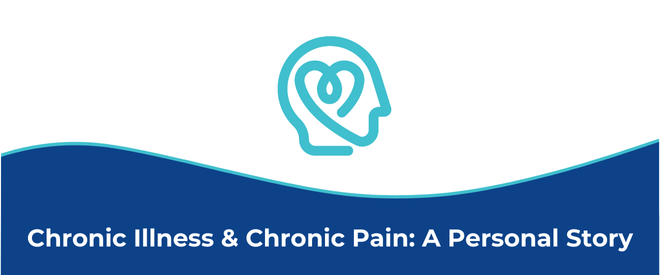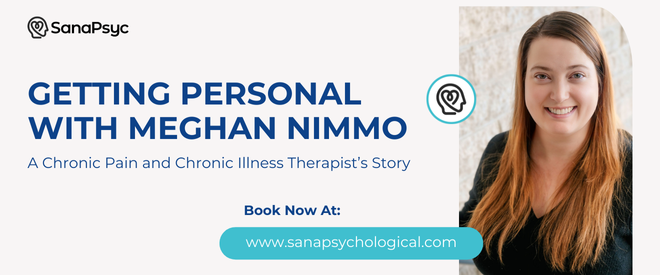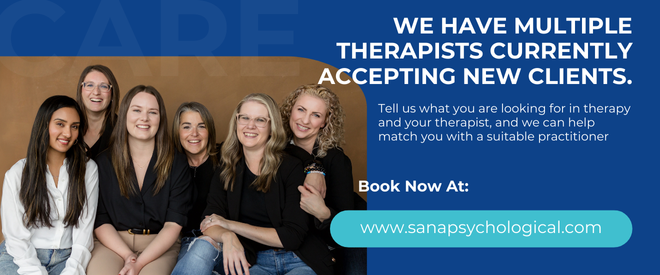
Living with a chronic illness and/or chronic pain creates some unique challenges, as well as opportunities, in the lives of the individual with lived experience and those around them. Many people who live with chronic illness and/or chronic pain find themselves called to give back and it is not unusual for people with chronic illness to seek out professions in healthcare. This allows for a unique intersection of lived experience and professional training. In this article, our chronic pain and chronic illness counselling Calgary therapists offer some insight into living with chronic illness and how this changes lives.
Offerings of Living with Chronic Illness According to Chronic Pain and Chronic Illness Counselling Calgary Therapists
Living with chronic illness can be incredibly challenging, but it can also lead to unique experiences and insights that shape a person’s perspective on life. According to our Chronic Pain and Chronic Illness Counselling Calgary therapists, here are some things people may gain or learn from living with chronic illness and/or pain:
- Resilience: Chronic illness often forces individuals to adapt to challenges and persevere through adversity. This can build a deep sense of resilience, helping people navigate other life difficulties with greater strength and adaptability.
- Empathy and Compassion: Experiencing ongoing health struggles can lead to a heightened sense of empathy for others who are suffering. People with chronic illness often become more compassionate and understanding of others’ struggles, whether physical, emotional, or mental. If you are interested in building your empathy and compassion muscles, download our FREE Emotional Intelligence e-book today to help you on your journey. You may also want to read more in our blog post about how compassion is built into chronic pain counselling and other therapy to provide the best quality care.
- Mindfulness and Gratitude: The realities of living with a chronic health condition can encourage a person to live more in the moment, cultivating mindfulness. Those who have experienced pain or limitations may also develop a deeper sense of gratitude for the times when they feel good or have small victories. These are also tools that our chronic illness counselling and chronic pain counselling therapists support individuals on strengthening to improve their quality of life.
- Stronger Relationships: While chronic illness can sometimes strain relationships, it can also strengthen them. Many people with chronic health conditions find that the experience brings them closer to certain friends, family members, or communities who offer support, love, and understanding. Our Chronic Pain and Chronic Illness Counselling Calgary therapists witness this every day in their work and see how strong of a bond these experiences can create.
- Personal Growth: Chronic illness often pushes people to explore their own limits, values, and priorities. This can lead to significant personal growth, as individuals learn to redefine success, rethink their goals, and make decisions based on their physical, mental, and emotional well-being. Our Chronic Pain and Chronic Illness Counselling Calgary therapists admire the determination and dedication individuals show to this quest that others may take for granted. If you are interested in resources to help you with this journey, visit our free resources page.
- Advocacy and Awareness: People with chronic illness often become advocates for themselves and others. This can lead to involvement in health awareness campaigns, support groups, or education efforts to improve understanding of their condition, helping to create a more inclusive and supportive society. It may also be what leads chronic illness counselling and chronic pain counselling therapists to do the work that they do! Though not every individual offering these types of services has lived experience, some do. If this is important to you, this is a question you may want to ask of a prospective therapist before starting counselling.
- Problem-Solving Skills: Dealing with the daily realities of a chronic illness can foster creativity and problem-solving. Individuals with chronic illnesses often develop unique ways to manage their health, from finding specific treatments to organizing their daily routines to work around their symptoms. Chronic Pain and Chronic Illness Counselling Calgary can help people identify these tools and strategies for supporting themselves.
- A Sense of Purpose: In some cases, living with chronic illness can lead to a renewed or deeper sense of purpose, especially when individuals are able to help others or find meaning in their struggle. It can become a source of motivation to educate, raise awareness, or contribute to research in ways that can help others in similar situations.
- Learning to Let Go: Chronic illness can teach acceptance, and this often includes learning to let go of perfectionism, unrealistic expectations, and the need to control every aspect of life. This can lead to emotional and mental peace. It may also lead to an exploration of other aspects of mental health to improve overall wellbeing.

A Chronic Pain and Chronic Illness Counselling Calgary Therapist’s Story
Congenital Heart Disease (CHD) is a serious condition, but many children and adults with CHD can lead full lives with proper diagnosis, treatment, and ongoing care.
Congenital heart disease refers to a group of heart defects that are present at birth. These defects affect the structure and function of the heart and can involve various parts, such as the heart valves, walls, blood vessels, or the heart’s chambers. CHD is one of the most common birth defects, affecting a significant number of newborns each year.
Meghan Nimmo, Chronic Pain and Chronic Illness Counselling Calgary therapist, was born with CHD and shares more about her journey of health, wellness, and what led to her finding a career in helping those with CHD.
“I am a one percenter. Sadly, not the top 1% of something like income or wealth. I am one of the 1% (or one in 100) people born with a congenital heart disease. Although this is the most common birth defect, for most of my life I received blank stares or wildly inaccurate responses to having CHD (often people would somehow link CHD to being lonely on Valentine’s Day. I don’t get it either).
It is true that many individuals that fall into this large category do not have major difficulties or require multiple, extensive surgeries. This is probably one of the reasons it is not so well known, as it can often be a silent force in someone’s life. If you have not come across CHD before, allow me to explain. It simply means that the heart was not formed correctly in utero (before birth). It is something that one person out of every 100 are born with, often for a variety of reasons, including that ‘we just don’t know.’
Having CHD is not always extremely complicated or serious; however, mine is on the more serious side of the spectrum (I am actually much rarer than one in 100. Yay for me?). For me, it meant that before I was three years old, I had undergone multiple procedures, tests, small surgeries, hospitalizations, and three open heart surgeries. I was extremely fortunate that I responded so well to these interventions. Since then, I have not had any more interventions to improve my heart function, which I cannot say for most of the people I grew up with who had CHD too. In fact, when I was in elementary school, I just thought that I was fixed. Sure, I had to go and get a bunch of tests done every year but that is only because I had a special heart, not that they were monitoring it to see for if/when it starts to fail.
As I got older, the reality of my heart hit me more. I started to understand that my surgeries weren’t a fix but just a hold over. Technically the surgeries I have had are classified as palliative, and as someone who watched her fair share of Gray’s Anatomy, reading the word ‘palliative’ was definitely scary. Dealing with the reality of an uncertain future, being in the first/second generation where living to adulthood was a possibility, and at the time not having anyone in my life with remotely a close experience to mine was a lot to handle. I had not yet considered the possibility of working with a chronic illness counselling therapist yet, but that slowly started to form on the horizon.
All individuals with chronic health issues, including CHD, are more likely to have mental health difficulties and I was one of these individuals. However, when I finally went to find a Chronic Pain and Chronic Illness Counselling therapist to talk through these things with, I found that many of them simply did not ‘get it’. While I have this health condition, it is not the only aspect of my life that I struggle with. Also, just because I need to talk about my lived experience, doesn’t mean that I only think about my health. This is something else the Chronic Pain and Chronic Illness Counselling therapists often misunderstood. I could never fully explain the intricacies of my health being ‘good, but not good.’ For me, this means accepting my health (it’s all I’ve known so to me it’s normal) but also sometimes being annoyed and scared by it. The complete lack of control when you have no idea what your life will be like in five years because of your health brings with it complicated feelings and thoughts. Eventually, it became easier to sort through my feelings on my own then with a therapist, as they were not as specialized in chronic illness counselling as I would have hoped.
As an adult, the inability to find a Chronic Pain and Chronic Illness Counselling therapist who understood my journey did not change. I hit a significant point where there was a shift in how my heart was doing and the reality of a transplant not only being a possibility, but a probability, in the future (although no doctor is able to give me a general timeline) came up. Naturally, with this news, what I wanted for my future and emotions became even more complicated. The psychiatrist I was sent to by my doctors said she did not understand my misgivings around the idea of a transplant. In that moment, my heart sank and I knew she would not be able to help me as she could not offer informed, compassionate, and empathetic chronic illness counselling.
There was a time when, as an adult, I reconnected with someone who was part of our family support group when I was a kid. I had mentioned that I recently had a CT scan and she jokingly brought up the feeling that happens due to the contrast dye that is injected during this test where it makes you feel as though you have peed yourself. At the time of the CT scan, I was not warned about this feeling from the contrast dye and I was mortified when it happened to me. When the test was finished, I was told that I could get up and go get changed, but I did not want to as I was embarrassed and uncomfortable. I tried to shift myself so that no one would see the wet stain I was sure was there as I got up. Of course, there was no wet stain, and I did not actually pee myself but connecting over that shared “Oh my god!, what do I do” moment was in its own small silly way, very healing. That moment felt like the opposite of the moment with the psychiatrist. It showed me the power of connection and community, whether informally or formally with a Chronic Pain and Chronic Illness Counselling therapist.
With these different experiences, I decided that I wanted to be the Chronic Pain and Chronic Illness Counselling Calgary therapist that people could come and talk to who would understand their life. While everyone has their own unique experiences with their medical condition, I have found that having some parallel life experience navigating uncertainty, the health system, fear, life, and misunderstanding helps make people more comfortable in sessions when they are receiving Chronic Pain and Chronic Illness Counselling Calgary.
Chronic health diseases are not like regular illnesses as there may never be a cure for us. Sometimes we can be healthy(ier) and sometimes there are bumps. Sometimes we don’t want to focus on that part of us but, instead, the rest of who we are and, at other times, we really need the realities of our condition to be acknowledged. I feel so honoured when I am fortunate enough to provide chronic illness counselling to someone with their own health journey. I want people to feel understood and supported, no matter if health problems are discussed directly or not, if we are talking about the realities of their mortality, or sharing a laugh about when they think they peed their pants during a CT scan. These moments, in their raw humanity, are beautiful and powerful. I am very grateful to be able to share in them.”
Thank you, Meghan, for your sharing about your lived experience and some of the challenges that come up when trying to find chronic illness and chronic pain counselling.
Helpful Self-Care Tips and Questions to Ask a Chronic Pain and Chronic Illness Counselling Calgary Therapist
For those of you who are looking for Chronic Pain and Chronic Illness Counselling Calgary, we suggest asking prospective chronic illness counselling therapists the following questions:
- Do you offer complimentary consultations?
- Do you offer flexibility with virtual and in person appointments?
- What is your cancellation policy? What happens if I am too unwell to attend our appointment?
- What made you get into chronic illness counselling?
- Are you able to share if you have any lived experience with chronic illness and/or chronic pain? How do you incorporate this into counselling?
- How do you approach therapy?
Please feel free to add your own questions to this list to help you make an informed decision about who you are accessing chronic illness counselling with.
For those who are not pursuing Chronic Pain and Chronic Illness Counselling Calgary in the near future, you may also want to consider self-care tools, including:
- Self-help and workbooks that connect for you
- Peer support
- Online support groups
- Sharing with supportive friends and loved ones
- Having a self-care routine
- Engaging in physical, emotional, relational tools to support health
- Journalling/reflection
- Mindfulness and gratitude
- Meditation
- Giving back
While not everyone chooses to access Chronic Pain and Chronic Illness Counselling Calgary, if you find a suitable practitioner to work with it can be a very empowering, humanizing, and grounding experience as you navigate the uncertainty of chronic illness and/or pain.
Sana Psychological is a mental health practice with clinicians on our team providing Chronic Pain and Chronic Illness Counselling Calgary. You can learn more about our therapists and our services here.


